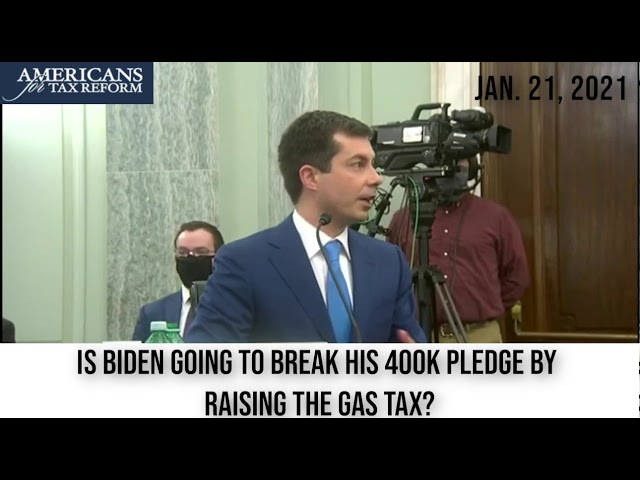Only two days in office and the Biden administration is already considering breaking President Biden’s campaign promise that “anyone making less than $400,000 a year won’t pay a penny more” in taxes.
During his Senate confirmation hearing for Transportation Secretary, Former Mayor Pete Buttigieg told members of the Commerce, Science and Transportation Committee that a gas tax increase is “on the table” as a means to pay for infrastructure spending.
When asked directly by Sen. Rick Scott (R-Fla.) if he supported increasing the gas tax and by what amount, Buttigieg replied, “I think all options need to be on the table, as you know, the gas tax hasn’t been increased since 1993 and it’s never been pegged to inflation.”
“There are several different models, in the short to medium term that could include revisiting the gas tax, adjusting it, and or connecting it to inflation,” Buttigieg continued when pressed by Sen. Scott to provide more detail.
WATCH:

Support for a federal gas tax increase would be a clear violation of President Biden’s pledge to not raise any taxes on any American making less than $400,000 per year. According to the Congressional Budget Office, raising the tax rate on gasoline would “impose a proportionally larger burden, as a share of income, on middle- and lower-income households,” while also imposing “a disproportionate burden on rural households.” Biden must immediately disavow a gas tax hike if he wants to stay in compliance with his pledge to the American people.
Buttigieg’s consideration of a gas tax increase also directly contradicts other statements issued by President Biden on the campaign trail.
“I’ve tried this before, we’re not going to be able to raise the gas tax,” President Biden said at an infrastructure forum in Las Vegas in February. “I don’t think we’re going to be able to raise the gas tax from what it is now to what it would be had it been raised for inflation,” Biden continued.
During today’s hearing, Buttigieg also raised the possibility of creating a new “vehicle miles traveled” (VMT) tax that would charge drivers based on a per-mile tax but cautioned that the technology might not be ready to support implementing this policy while also raising privacy concerns.


